Living creatures of the Earth are also important stakeholders. Talking About Sustainability with Nomura Real Estate Group CEO (Part 1)
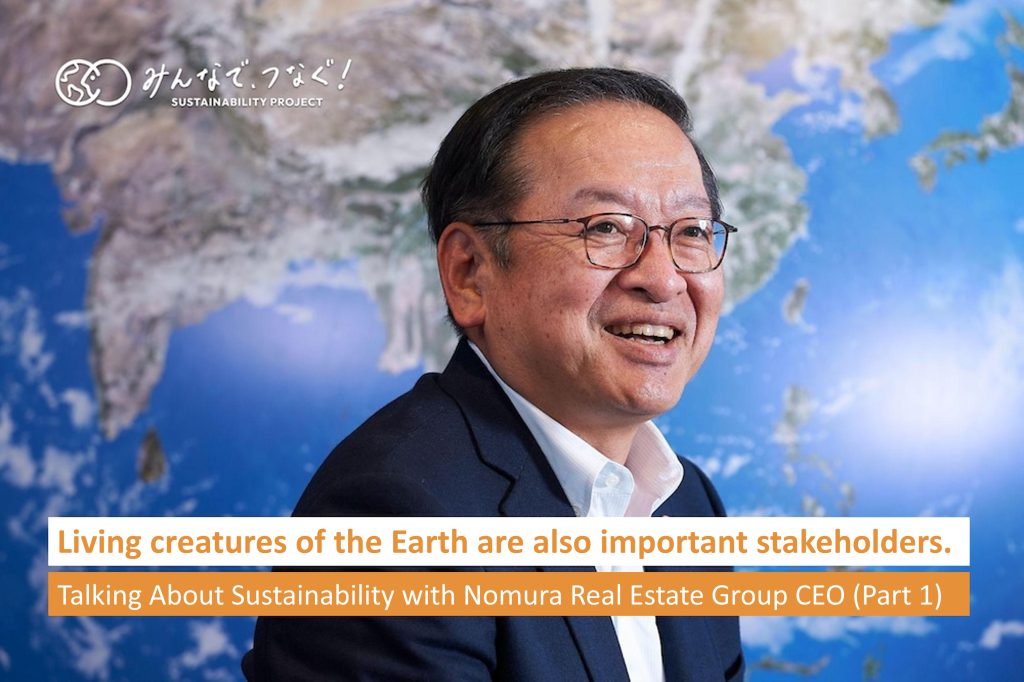
In order to learn more about Mr. Arai's passion for sustainability, he had an in-depth interview with Asuka Matsubara, who has been with the company for four years and was assigned to the Sustainability Promotion Department this fiscal year. We present the first and second parts of the interview in this issue.
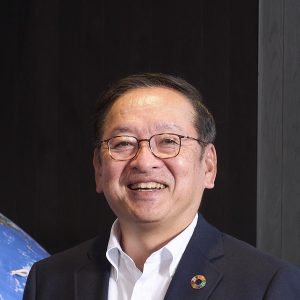
- Interviewee
- Satoshi Arai, Group CEO, Nomura Real Estate Holdings, Inc.
Born in Aichi Prefecture Mr. Arai joined Nomura Securities Co., Ltd. in 1988 after graduating from university, retiring from the company in 2022 when he was Vice President of Sales. In the same year, he joined Nomura Real Estate Holdings, Inc. and since 2023 has been serving as President, Group CEO, and Chairman of the Sustainability Committee. During his school days, he was a member of the kendo club. These days he enjoys drinking almost every night and playing golf three to four times a month.
This was Ms. Matsubara’s first interview. And with the interviewee being a CEO, she grew a little tense as the day approached.
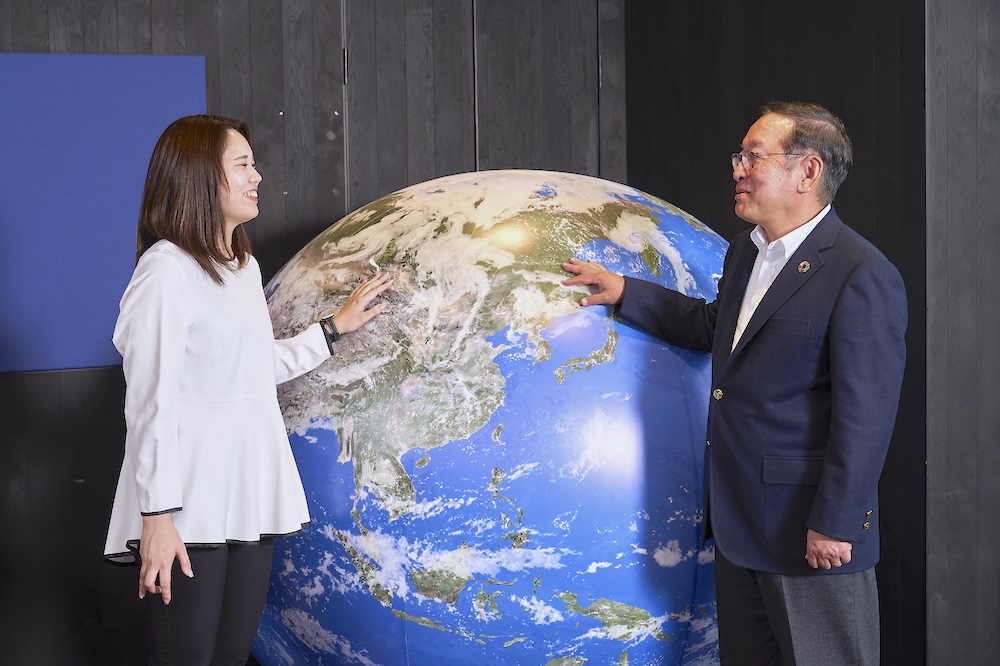
When Mr. Arai entered the room, he pointed to a large globe and asked jokingly, “Do you want to lift this up and take a picture?” This broke the tension and started the interview off on a relaxed note. (Interviewer: Asuka Matsubara)
-Thank you very much for your time today. It's been a year since you were appointed CEO and Sustaina chairperson. How do you feel looking back?
Time flies as you get older, and I honestly can’t believe that it’s already been a year. I was in the securities industry for more than 30 years with Nomura Securities, so what I see and hear in the real estate industry is fresh and exciting. Perhaps it is because I am spending my days in such a fulfilling environment that time seems to fly by so quickly.
On the other hand, looking back on my efforts as CEO over the past year, I feel that I am still short of the mark and that I need to work with more speed. The pace of change in social conditions and the global environment is tremendous. New issues are constantly emerging and the technologies and ways of thinking to deal with them are also evolving. To be honest, our Group is currently in a situation in which we follow sustainability changes in the world, but we would rather be in a situation in which we anticipate changes and create our own opportunities.
-The pace of change in the sustainability field is much faster than we think. What are some of the things you always think about or have noticed while dealing with sustainability?
I have always wondered what, in essence, sustainability is. In addition to sincerely addressing the Group's sustainability policy and materiality issues, I feel that sustainability is all about realizing that the stakeholders to whom we can convey our thoughts actually constitute a much broader base.
Sustainability is achieved when we are conscious of this wide range of stakeholders and act to enrich them and make them happy. Stakeholders include direct ones, such as customers, employees, and shareholders, and indirect ones, such as the earth, its creatures and resources, and people around the world.
I believe that if we can broaden our definition to cover these stakeholders, it will naturally lead to our group offering a wider range of services and also to society holding higher expectations for our company.
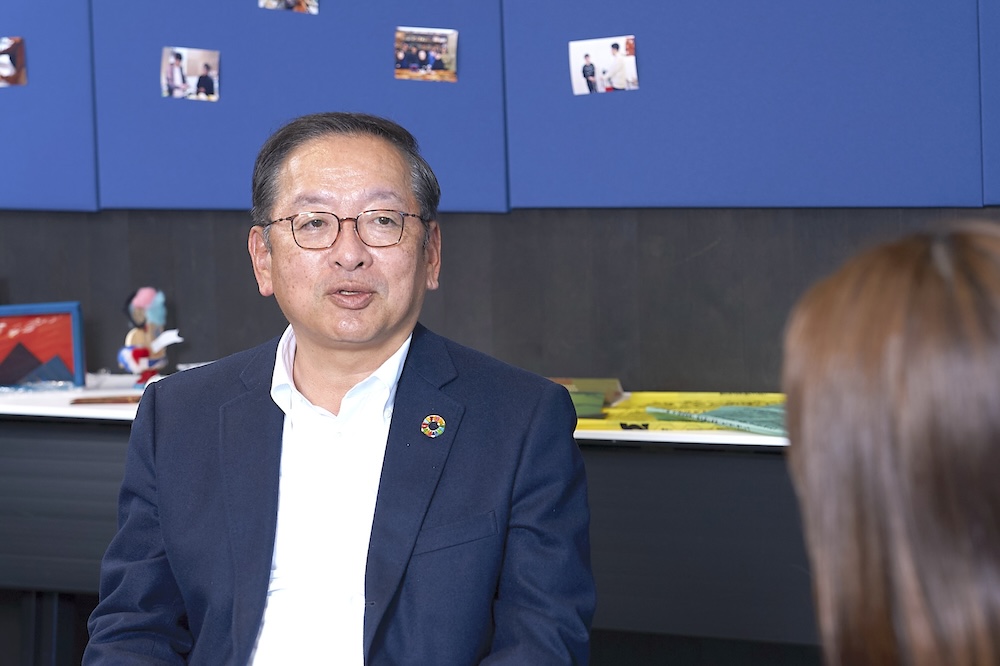
-It is refreshing to see that you also consider living creatures and resources as stakeholders. Was there a trigger that led you to think so?
It was when I visited our Tsunagu Forest in Okutama, where various plants and animals live. There, I was reminded that they support each other and that they also support us through the richness of the forest. It was also triggered by the book “Less is More” by Jason Hickel, which I read just around that time (although I don’t agree with everything in this book). Reading it made me realize what you may already know: sustainability in the corporate world means to be needed and to continue to exist.
While we need the bounty of the forest, we must also care for and maintain it. If you need your family and friends, you also need them to need you, or the relationship will not last. It is the same with a company: it cannot exist unless it is needed by the world through its business and services. So we must always ask ourselves how many stakeholders need us.
Filming a TV program at Tsunagu Forest (before greeting the mayor, so I was wearing an embarrassing suit and sneakers)

-I see that the key is to have a sense of being needed. The Nomura Real Estate Group's sustainability policy is Earth Pride. Can you tell us about the ideas behind this policy?
I have mentioned these before, and I think they are obvious, but I’ll mention them again. As our views about stakeholders change, we strive to provide excellent products and services to customers, increase employee engagement, provide returns that satisfy shareholders, and pass on our bountiful planet to the next generation.
In this light, the goals of the Group's Sustainability Policy—humanity, coexistence with nature, and a future created together—are no longer simply desirable but rather crucial to the Group being needed by the world and being able to continue to exist. But making this sustainability policy a part of our daily work and life requires that each and every one of us is constantly aware that this is the way it should be.
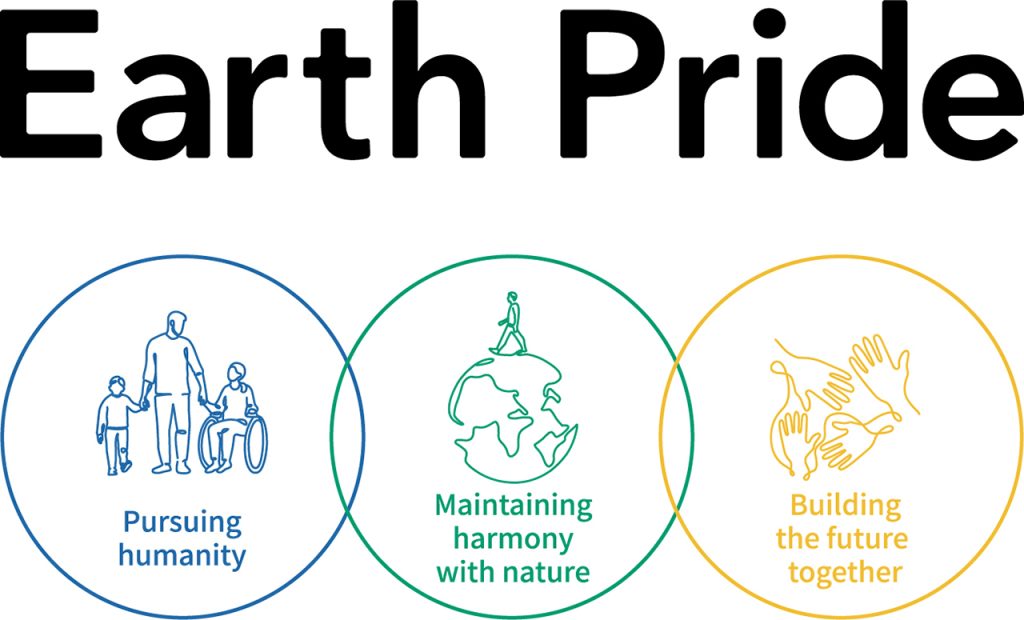
-How do you see the role of the Nomura Real Estate Group in achieving a sustainable society in the midst of rapid social and environmental changes?
Looking at the events happening around us—global warming, climate change and other serious environmental problems, conflicts in an increasingly complex society—it seems to me that the environment and the situation surrounding us have rather worsened in the 40 years since the 1980s. If we don’t improve this situation soon, things are going to get worse before they get better. In order to make a major change for the better, it is essential that we not only rely on the efforts of international organizations and governments, but also strengthen the efforts of individual companies and individuals.
For example, with regard to environmental issues, if we continue with the same efforts as before and the Earth and its resources and many living creatures are lost, the global environment—the foundation of our corporate activities—will not be maintained. That is why the Group, in addition to its customers, suppliers, shareholders, and employees, includes the Earth and its resources and living organisms among its stakeholders and sees its role as one of contributing to them.
-Rather than just saying, “Nature is important, let's protect it,” it is important to always be aware of how our businesses and lifestyles will be affected by the changes that are taking place and how our actions can affect them.
That is true. What is happening now is the result of what past generations and ourselves have done previously, and our actions today will also determine our future situation. It is clear that we must protect the earth and its creatures, which will continue to be our stakeholders, so that the next generation and our descendants can enjoy a prosperous life.
In order to realize our sustainability policy, I will abandon the idea that human beings are special and will place high value on continuing to question the meaning of human existence and what human happiness means.
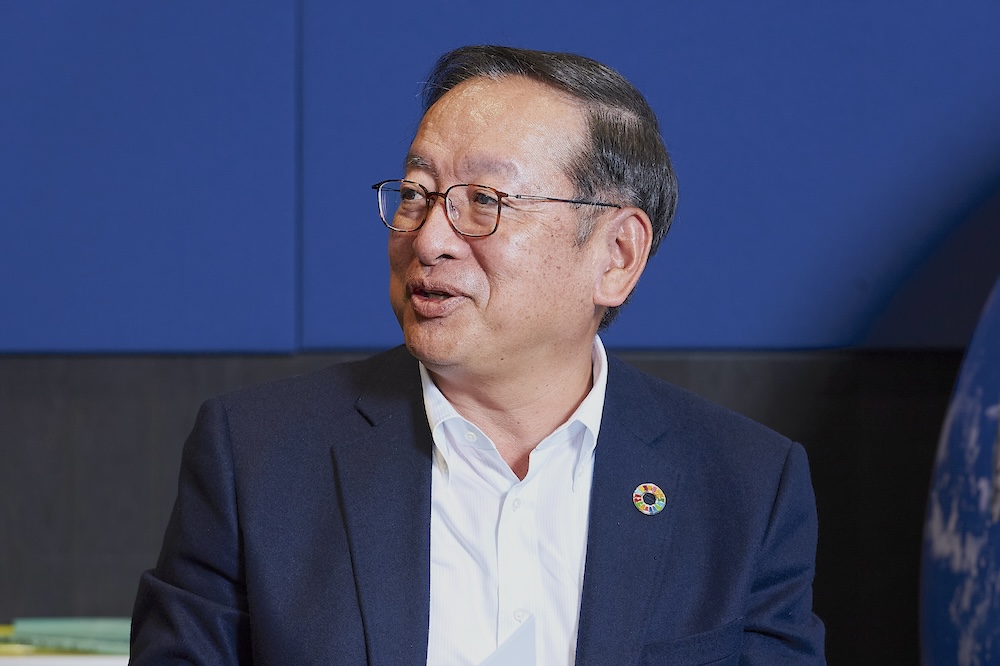
So far, we have been asking Mr. Arai about his view of sustainability, how he perceives our policy of Earth Pride, and trying to grasp the essence of this concept. In the second part of the interview, we will talk about how to think about stakeholders in a way that extends to the Earth and its creatures, and get his perspective on how to face the complex issues of sustainability. We will also touch on episodes from his childhood. Enjoy the second part of the interview.
